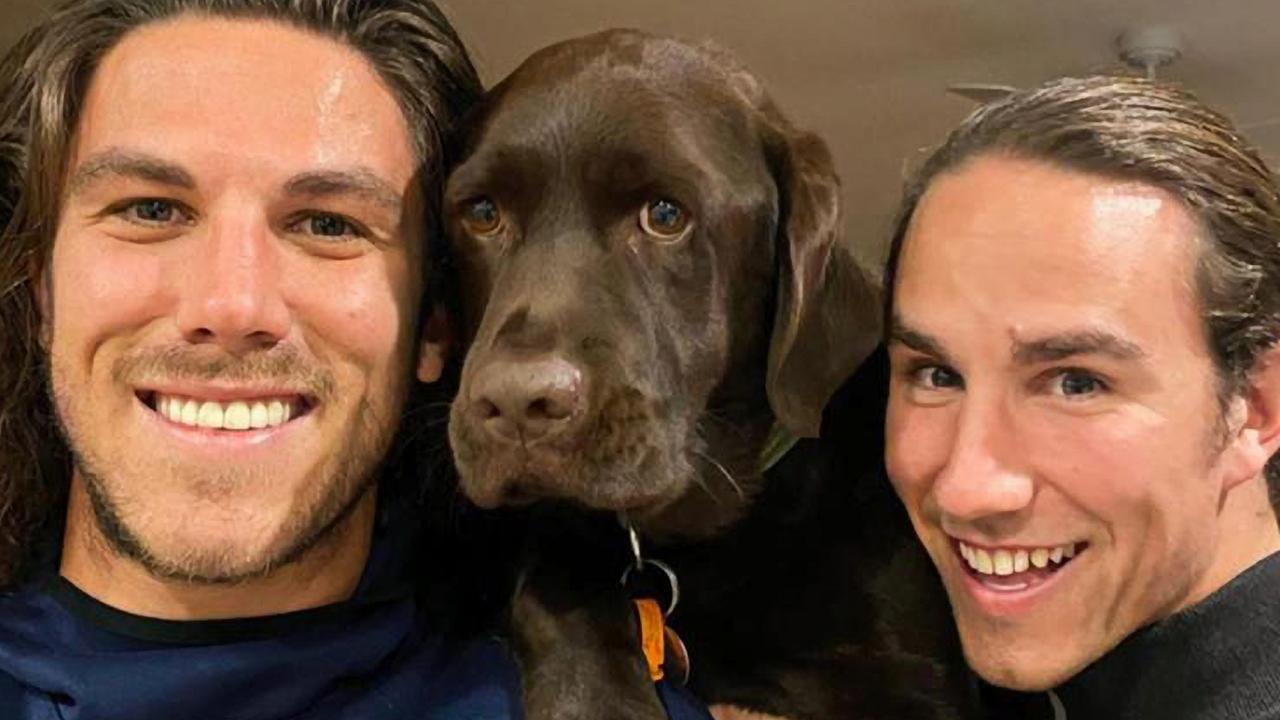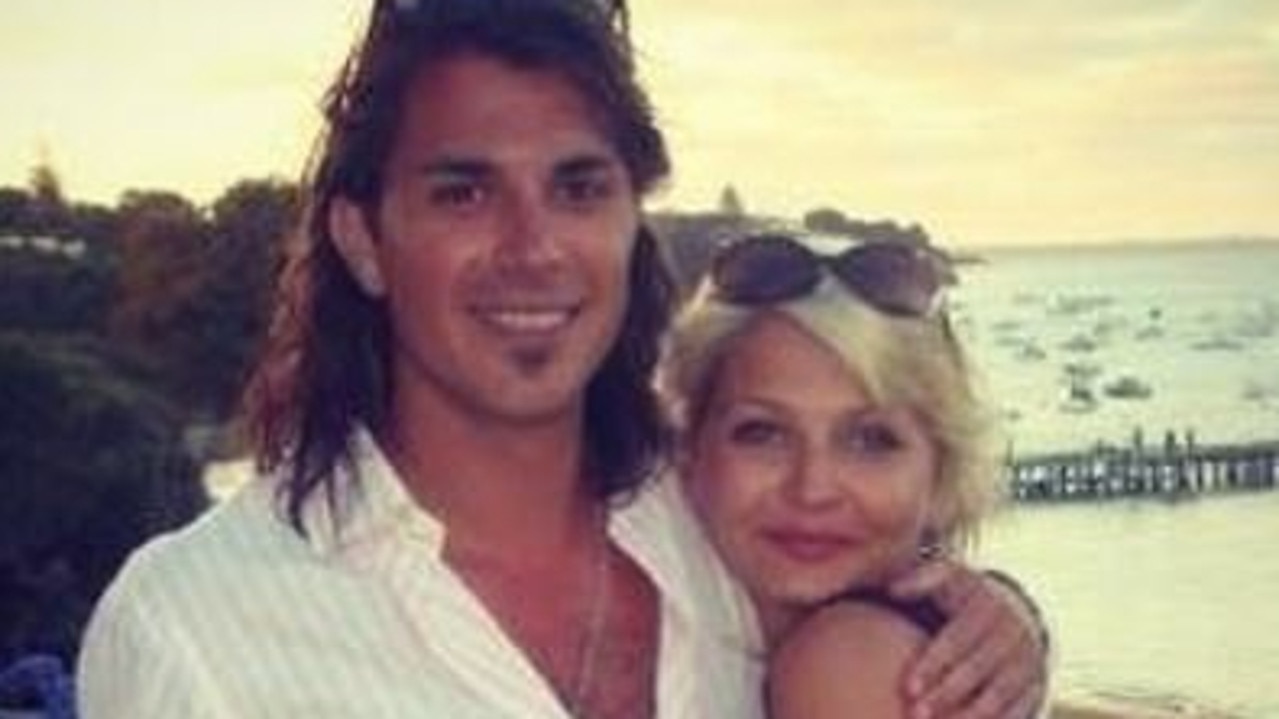Aussie Hells Angels on run after wings clipped in Thailand
SIX Australian Hells Angels are in hiding after their visas were revoked in Thailand as police probe drug trafficking, standover tactics, weapons possession and money laundering.
Crime in Focus
Don't miss out on the headlines from Crime in Focus. Followed categories will be added to My News.
SIX Australian Hells Angels bikers are on the run in Thailand after being branded ‘undesirables’ and having their visas revoked, with police claims they were involved in transnational drugs trafficking, standover tactics, weapons possession and money laundering.
The formal cancellation of their visas, backed by police raids, is the latest move by the Royal Thai Police to disrupt foreign bikers, notably from Australia, from setting-up offshore businesses and chapters.
Tougher laws in Australia have prompted criminal elements largely from the Hells Angels, Rebels, Bandidos and Commanchero Outlaw Motor Cycle Gangs (OMCGs) to set-up operations in South East Asia including Thailand, Vietnam and Indonesia.
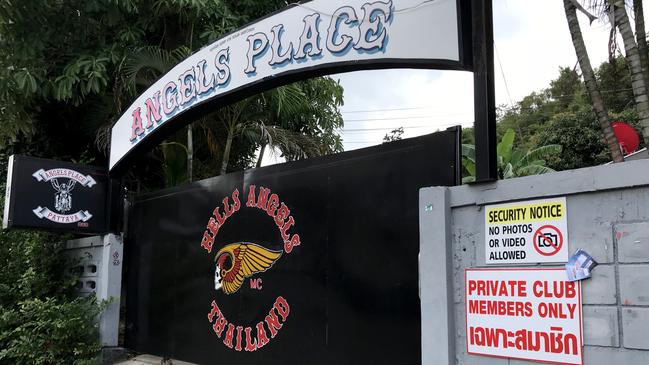
The six, believed to be from Australia’s Hells Angels, were being sought by Thai authorities for questioning about their activities and also face deportation for allegedly posing “a threat to society” through illicit drugs and extortion.
Raids on their properties in Pattaya have found some weapons and ammunition. The men are believed to be in hiding in Bangkok, although one is suspected to have slipped back to Australia.
Another three Australian OMCG members were ordered to be deported in December last year after raids on their properties, while another Hells Angels member from Britain was arrested in February this year.
The Australian Federal Police declined to comment on the specifics of the latest case.
“We understand that six suspected Australian Outlaw Motor Cycle Gang (OMCG) members have had their immigration visas revoked by Thai authorities and they are currently awaiting the resolution of legal processes in Thailand,” a spokesman said.
“A significant number of Australian OMCG members have attempted or will continue to attempt to move their operations offshore to escape Australian law enforcement efforts and globalise their criminal activities. However, the AFP continues to share intelligence and expertise with its overseas partner agencies to identify, disrupt and dismantle criminal syndicates impacting on Australia, wherever they are based.”
The Australian Criminal Intelligence Commission has actively been looking at disrupting bikie operations, last year producing a record more than 400 intelligence reports about significant on and offshore biker activities to share with law enforcement partners.
Special report: Hells Angels clawing their way into Asia
Inside the Hells Angels: The biggest and baddest bikie club
“Intelligence obtained under the OMCG Special Operation, including through the use of ACIC powers, has broadened our understanding of international gang environments and transnational gang-related crime,” a spokeswoman said.
“It has helped to build our understanding of OMCG expansion offshore and the increasing prevalence of international connections used to source illicit commodities, such as drugs, and to launder money.”
Ironically, many of the Australian OMCGs had been allowed to buy $20,000 five-year “elite-class” residency visas to stay in Thailand, designed to attract capital and investment into the country and ease access through airport controls.
For the Hells Angels that capital has included the construction of a compound outside of Pattaya which includes a bike show room and repair shop and a bikie leather goods and accessories store.
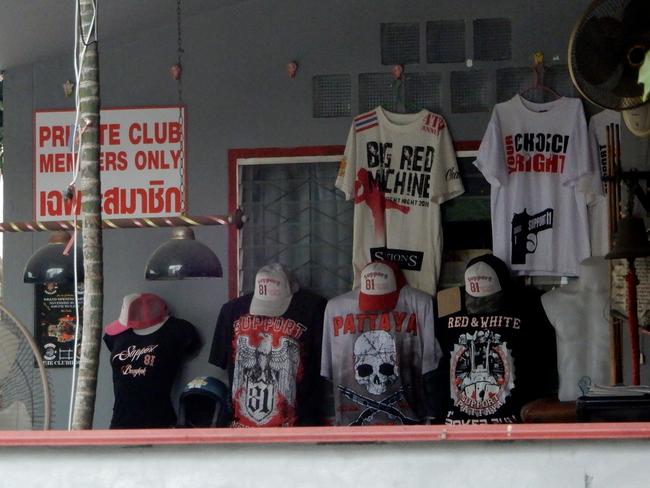
GROWING PROBLEM
An investigation by News Corp Australia has found in Thailand alone, 36 chapters have been established by Australian-led or affiliated OMCG members, particularly around the popular tourist resort cities of Pattaya, Phuket and Chiang Mai and capital Bangkok.
Chapters have also been established in Indonesia, Cambodia, Singapore, through a bunch of shelf companies, and soon also Laos and Vietnam, while in Japan there is now evidence OMCG Australian affiliates have linked with the fearsome Yakuza.
In Myanmar, known Australian gangsters are sourcing drugs to on-send to Australia and recruiting locals to protect their hauls through to shipment stage. Other drugs, predominantly meth and precursor chemicals are being sourced from China and India but transiting Thailand and Malaysia.
Such is their reach, an “Asian chapter” led by Australians and Germans is being set up also in Dubai in the United Arab Emirates. It is here groups are allegedly laundering their funds gained from illegal and legal enterprises elsewhere.
Recently leaked Panama Papers detailing millions of offshore financial movements can also now be linked to OMCG, notably money laundering and establishment of front companies to operate “boiler rooms” for high-pressure mass selling of investments that may or may not exist. Intelligence has found “millions” of dollars had been allegedly fleeced from ordinary Australians by OMCG-linked front companies running hard-selling boiler rooms, predominantly in Thailand and the Philippines.
Fears of extortion and intimidation had also already been reported by communities to local police forces in Thailand, but several incidents of violence and drug and weapon seizures have prompted authorities to appeal to Australia for greater intelligence as they look to mount a case to brand OMCGs as organised crime groups which would give them greater powers of arrest, asset seizures and deportation.
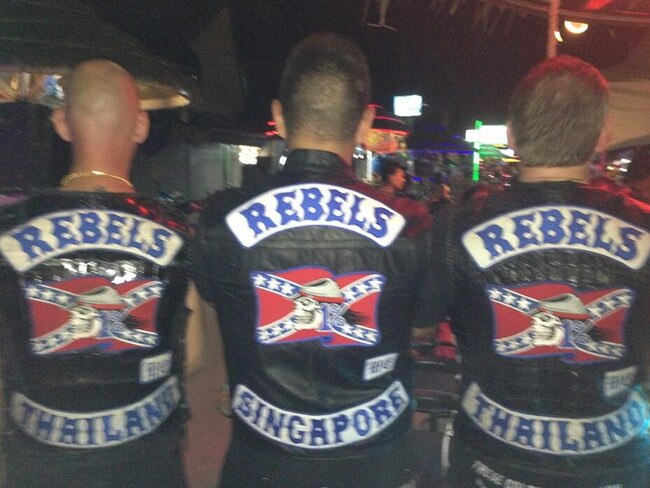
THE TURNING POINT
This time last year, police force chiefs from across South East Asia gathered in Bali for the annual AFP-led forum on crime trends in the region.
The AFP had long spoken about the dangers posed by OMCGs from Australia, which were shifting operations to the region to avoid police scrutiny.
“Don’t accept they are just setting up a motorcycle club in say Pattaya and Phuket, these people are evil, they are organised crime and you need to wake up and get ready for it,” the AFP warned.
It got acknowledging head nods, but then the AFP showed a CCTV video of an all in brawl of Comanchero bikers at a strip club in Canberra from that same month.
The group were on a national run to Canberra with about 100 members from NSW, Victoria and Queensland, but an internal dispute led to a shirts-off brawl in the strip joint, club members beaten unconscious with the CCTV showing one member glassing himself in the face behind leaping into the fracas.
“They smashed the hell out of each other and this is the same tribe,” the audience were told. This is one gang, look at how brutal they are to themselves because of what is going on internally … if you don’t get in front of these people they could become entrenched.”
That video was enough for all police to agree to look at the OMCG issue in their own backyards.

STORM FRONT
Taskforce Storm is the only bilateral police operation of its type in Thailand.
It links the Australian Federal Police with four critical divisions of Thai law enforcement that in 18 months has seized more than 3000kgs of drugs in both Thailand and Australia worth $1 billion.
The covert operation, re-signed between the Australian and Thai governments for another year last week, involves Thailand’s Office of Narcotics Control Board, the Anti Money Laundering Office, Department of Special Investigations and Royal Thai Police.
Last month, critical intelligence received from Thai authorities through the AFP’s Bangkok Post and Taskforce Storm led to the largest ever seizure of drug precursor chemicals at Australia’s borders with the seizure of 3.9 tonnes of liquid ephedrine concealed in bottles of green tea. Another 350 kilograms of methamphetamine concealed in buckets of plaster was also found and several arrests made in both countries.

